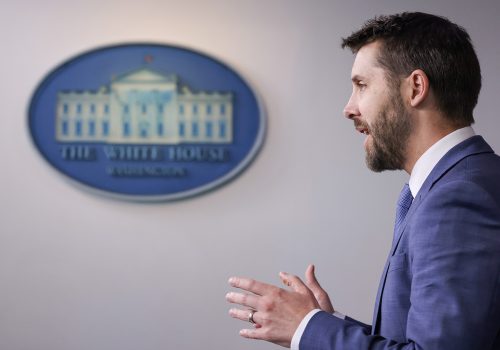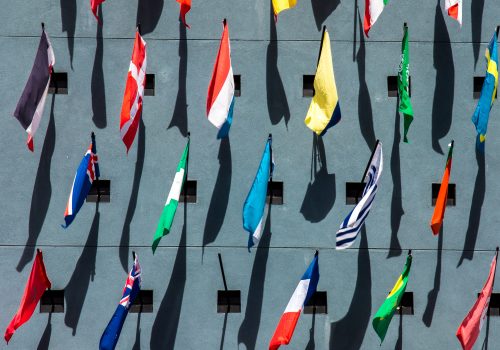We can increase public participation in data and avoid surveillance states: Here is how
Encouraging the use of “Data Trusts for Good” could be the most effective way to overcome the lack of sufficient data to tackle the COVID-19 crisis, without creating a surveillance state in the process. Data Trusts can inform COVID-19 recovery activities of all types and be used to train AI and algorithms in a way that ensures proprietary and personal data is protected and deleted after a certain point. Working alongside both industry and government partners, the Atlantic Council can help develop, implement, and assess COVID-19 Data Trusts.
A specific initiative would establish a Data Trust for Good to provide regional information about data associated with a detailed COVID-19 recovery plan. The information contained within the trust would inform, for example, where it is safe to return to work, when facilities have been cleaned, whether there effective safety protocols in place, or even where public transportation is working and where it needs to be improved.
In collaboration with partners in the selected region of importance, the project would seek to demonstrate a cross-sector, cross-country approach to creating and governing a Data Trust to help workers return to their jobs safely amid COVID-19.
Leveraging “Data Trust for Good” to combat COVID-19 comprises three key tasks:

First, we must transparently develop frameworks for data access, including both data trusts and other contractual agreements, that will make the needed data available for defined COVID-19 recovery initiatives. The frameworks—data trusts and contracts—will also specify standards for the ethical use of the data and the how data governance will be formulated. The operationalization of the data access will have both a normal mode during which COVID-19 recovery continues to improve, and a mode when exigent circumstances require special cooperation and data access among public and private institutions in the region.

Second, we must collect data on how well access to data is performing in aiding the region’s recovery, and how fully users are adhering to the ethical standards and governance agreements. To maintain public trust, the system’s performance must be audited, and standards for this evaluation must be developed. Professional auditing organizations will help formulate this portion of the initiative.

Third, we must educate all public and private institutions and all people on the benefits and risks that result from the data trusts and other data sharing. These benefits comprise the health and economic recovery, and the independent assessment that privacy, ethics, and data ownership standards are adhered to. To establish confidence in the sustainability of this approach, we must evaluate risks that appear during implementation and alternative solutions that should be considered.
The world needs a collective effort to gather and share data to steer society and nations back to full operations, and to provide early indicators and warnings of future pandemics. Current methods for accessing data owned by public and private institutions and private citizens today are not able to guide COVID-19 recovery. The new data access frameworks in this initiative can succeed while strengthening societal welfare, prosperity, and peace around the world.
Onwards and upwards together.
New technologies and data are tools. It is upon the choices we make, both as individuals and as communities, that ensure that they are used as a force for good in the world.


